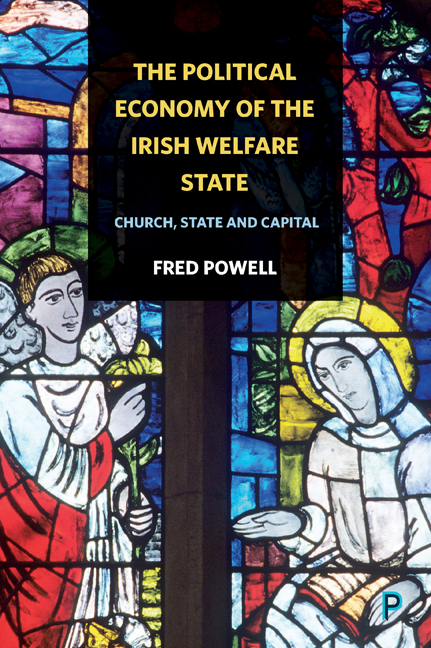Book contents
- Frontmatter
- Dedication
- Contents
- Preface
- Introduction
- one Why the welfare state matters
- two Revolution, culture and society
- three Welfare in the Free State
- four Religious nationalism, sectarianism and anti-semitism
- five The welfare state debate
- six Poverty and social inequality
- seven Liberty, gender and sexuality
- eight The marketisation of the welfare state
- nine Crisis, austerity and water
- ten Conclusion
- References
- Index
one - Why the welfare state matters
Published online by Cambridge University Press: 08 April 2022
- Frontmatter
- Dedication
- Contents
- Preface
- Introduction
- one Why the welfare state matters
- two Revolution, culture and society
- three Welfare in the Free State
- four Religious nationalism, sectarianism and anti-semitism
- five The welfare state debate
- six Poverty and social inequality
- seven Liberty, gender and sexuality
- eight The marketisation of the welfare state
- nine Crisis, austerity and water
- ten Conclusion
- References
- Index
Summary
The concept of a welfare state has strong normative connotations. It is conceptually associated with a commitment to both democracy and social justice. Democracy – which encompasses human rights, citizen's voice and participatory decision-making power, freedom of information, and many other factors – is a prerequisite to striving for and genuinely accepting social justice. It is also necessary to create the societal and political coalitions necessary to achieve at least acceptable levels of social justice, and at the practical level to finance and accept the institutions, policies, and patterns that enable a welfare state to function.
Gabriele Kohler, 2014: 2Gabriele Kohler's description of the welfare state reminds us of the imperative of preserving our democratic heritage in a global era dominated by neoliberal market values and the pessimism of postmodernists about the possibilities of human progress. It may sound dramatic but some think that the very basis of our civilisation may be at stake in the defence of the welfare state. The renowned French sociologist, Pierre Bourdieu (1998: 24), describes it as a fight ‘against the destruction of a civilization, associated with the existence of public services, the civilization of republican equality of rights, rights to education, to health, culture, research, art and, above all, work’. This is a powerful humanist endorsement of the purpose and ethos of the welfare state, one which defines it as a set of institutionalised provisions designed to meet the social and economic needs of citizens in a democratic society. Social policy is not simply another area of governance but also the framework for modern civilised social life. The ethos that has underpinned the welfare state is the modern expression of civic humanism in a secular world governed by democratic institutions. It is the link with our past in the classical civilisation but it is also our compass for the future, if we are to protect ourselves from another Dark Ages in which we begin to witness ‘the degradation of civic virtue’ (Bourdieu, 1998: 4).
Social justice is at the core of the ideal of the welfare state, which strategically seeks to redress poverty and income and wealth inequalities. The welfare state promotes nation building by creating the concept of a reciprocal society, supported by its citizens, thus enhancing social and political cohesion.
- Type
- Chapter
- Information
- The Political Economy of the Irish Welfare StateChurch, State and Capital, pp. 13 - 30Publisher: Bristol University PressPrint publication year: 2017



